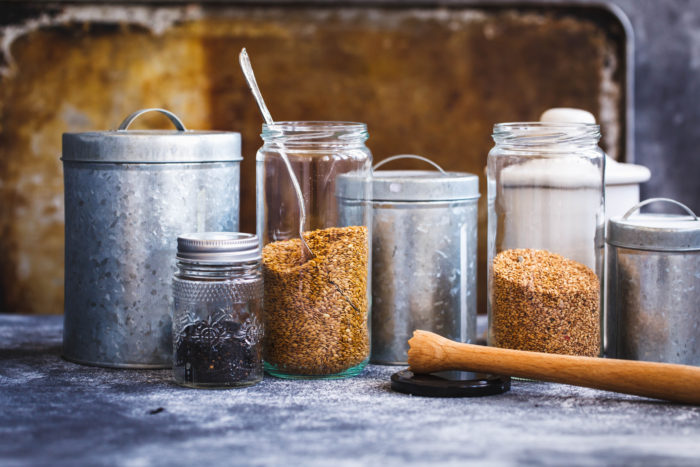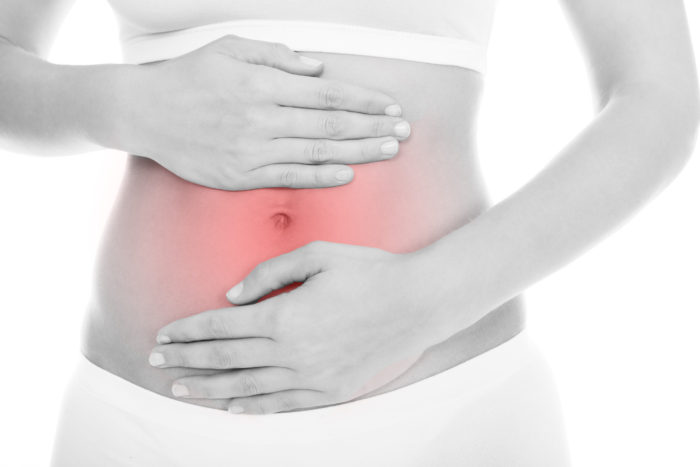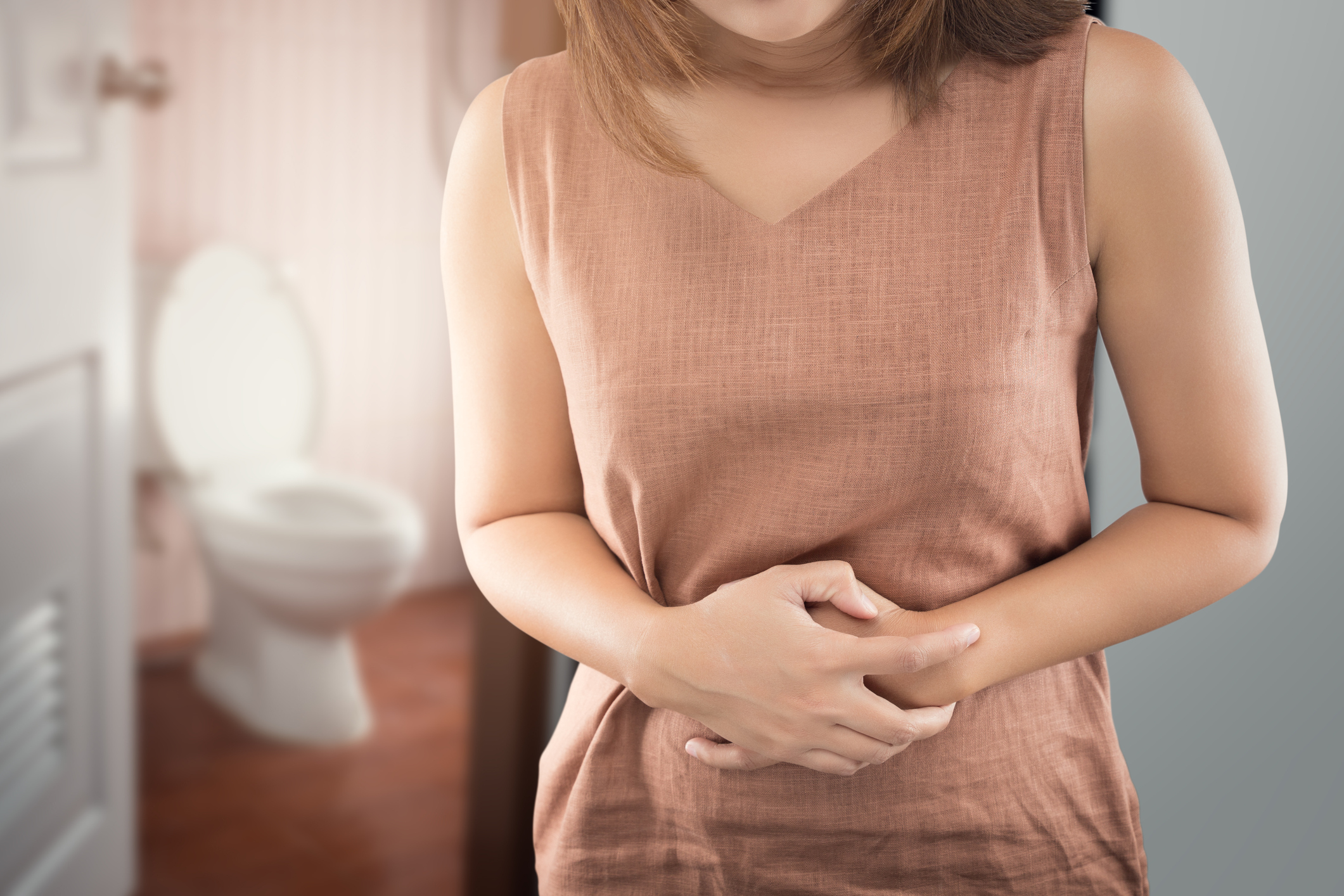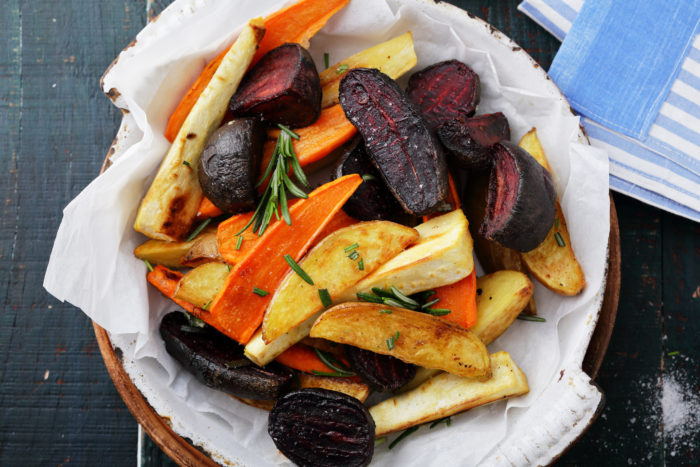At some point in of our lives, most of us deal with constipation, and there is nothing comfortable about it.
Constipation causes our stools become lumpy, hard, and difficult to pass. It often feels as if there is a blockage in our colon, and the bloating it causes can be painful.
Constipation causes us to feel lethargic and sluggish, and when it goes on for too long, we feel absolutely awful.
Typically, a person is considered to be constipated when they have less than three bowel movements per week. But I prefer my clients to get at least one solid bowel movement per day, if not two!
Restoring your gut motility is essential to overall good health (and happiness!) If you’re struggling with constipation, it’s crucial to get things moving in your gut as soon as possible.
Keep reading to learn how to solve your constipation for the perfect poop!
What is Gut Motility?
According to The International Foundation for Functional Gastrointestinal Disorders, gastrointestinal motility refers to the movements of the digestive system and the transit of the contents within it.
When nerves or muscles in any portion of the digestive tract do not function with their normal strength and coordination, a person develops symptoms related to motility problems.
Many people treat episodes of constipation by increasing their water intake, eating a variety of fruits and vegetable and adding in fermented foods to your diet.
These options are all fine and well – if they work.
If your constipation continues and is causing repeated episodes of bloating and discomfort, you’re likely missing something in your treatment approach.
What If Constipation Continues?
I work with many clients who are transitioning from a traditional American diet to an ancestral or Paleo type diet.
In the first few weeks of any new diet, especially if it’s a major change from how you were eating before, it’s normal for your body to need some time to adjust.
If they aren’t “regular” within the first couple of weeks of their new diet, I consider other important factors that could bring relief to their constipation.
Here are some of the most important factors to consider when dealing with chronic constipation.
Carbohydrate Intake
Carbohydrates help bring water into your large intestine and make stool easier to pass. If you’re transitioning from a traditional American diet to an ancestral or Paleo diet, you’re most likely decreasing the number of carbs you’re eating each day.
When people begin this dietary transition, constipation is a prevalent symptom. The best course of action is to experiment by adding back in healthy carbohydrates to your diet to see if your constipation improves.
Healthy carbohydrates to add in include fruit, potatoes/sweet potatoes, and grains or legumes if tolerated. Legumes work well for many people as a healthy component of their diet, and many of my clients tolerate gluten-free grains just fine.
Caloric Intake
If you are having trouble with constipation, it’s important to look at your overall caloric intake. This is especially important if you’ve recently changed to a more ancestral type diet. The sudden change in the types of food you are eating, as well as the removal of certain food types, frequently leads to eating too few calories.
How many calories do most adults need? An average woman needs to eat at least 2000 calories per day to maintain her weight, and at least 1500 calories to lose one pound of weight per week. An average man needs 2500 calories to maintain, and 2000 to lose one pound of weight per week. However, this amount changes depending on numerous factors. These include age, height, current weight, activity levels, and metabolic health, among several others.
If you don’t have enough calories, there won’t be enough energy to fuel your metabolism, which can negatively impact thyroid function and lead to constipation. You need to analyze whether or not you’re eating enough calories for your height and activity level.
Listen to more about caloric intake on Unpacking “Adrenal Fatigue,” Hormonal Imbalance, and Caloric Intake With The Paleo Women
It’s important to note that carbs and calories feed into each other. When you remove carbs from your diet, you’re also cutting out a considerable amount of calories. Many people don’t always replace those calories properly.
Soluble Fiber
If you’re eating a variety of nonstarchy vegetables, you are getting plenty of insoluble fiber, but not often not as much soluble fiber.
In conventional medicine, you often hear that insoluble fiber is what relieves constipation. However, in most cases, I believe that the opposite is true.
In my opinion, eating more soluble fiber helps constipation. Increasing the amounts of fruit and starchy vegetables such as potatoes, sweet potatoes, plantains, and yucca or taro, brings more water into the large intestine and softens your stool. Soluble fibers are known to be soothing for GI track.
The other benefit of increasing the amount of soluble fiber in your diet is that you’ll often eat more carbs and calories in general, which improves constipation too.

What About Insoluble Fibers?
You often hear medical professionals recommend adding more insoluble fiber to their diet because the average American is not getting enough. Be aware that if you are having constipation issues, and your doctor recommends adding in more insoluble fiber or a fiber supplement, you might not need it. If you’re on an ancestral or whole foods diet already, chances are you are getting enough. (If you’re not sure, track a day of food intake here.)
You also need to keep in mind that it’s possible to eat too much insoluble fiber. While eating a high fiber diet usually won’t hurt you, in the long run, you could be at risk for increased constipation or even bowel obstruction if you eat extremely high amounts of insoluble fiber without adequate quantities of water.
The most common complaints after eating too much fiber or adding fiber too quickly are flatulence, bloating, audible digestive noises, diarrhea or constipation, cramping and, in rare cases, malabsorption or intestinal obstruction.
Determine how much insoluble fiber is in your diet before speaking to a medical professional. If you have enough insoluble fiber and remain constipated, it’s important to look at your soluble fiber intake instead.
Listen here for more about why eating foods with soluble fibers is important here!
The best course of action might be to reduce the amount of insoluble fiber and increase the soluble fiber in your diet.
Other Options For Relieving Constipation
Digestive Enzymes AND MOTILITY PROMOTERS
The pancreas and small intestines produce enzymes that break down our food into nutrients so that our bodies can absorb them. If we don’t have enough digestive enzymes, we can’t break down our food—which means even though we’re eating well, we aren’t absorbing all that good nutrition.
During the transition to an ancestral diet, you might have trouble making digestive enzymes. This is usually because you’ve made major changes to your food composition when you start a new diet, so your body isn’t able to keep up with an adequate production of enzymes.
Adding a digestive enzyme to your diet might be a good idea to get things moving again. They are easy to stop taking, so there is no reason to be concerned that you will become dependent on them.
My favorite digestive enzyme product is Super Enzymes by NOW Foods. They contain a small amount of HCL (acid) in them which further benefits the production of digestive enzymes later in the digestive tract.
Would you like to save this post?
Your email address is 100% safe and will never be sent spam.
It’s far better to try out digestive enzymes first rather than herbal laxatives. The digestive enzymes will help you achieve your goal of regular and healthy bowel movements more naturally.
Herbal laxatives are much harder to stop taking and frequently lead to dependency.
Unlike laxatives, motility promotors are more gentle on your GI tract and support healthy gut motility. Some of my favorite products include Iberogast, Triphala, and Motil-Pro.

Treating SIBO
SIBO is the acronym for “small intestinal bacterial overgrowth,” defined as excessive bacteria in the small intestine. When carbohydrate and calorie consumption are at normal levels, and constipation is still an issue, SIBO is often suspected.
If you find out you have SIBO, especially if the results determine that you have methane positive SIBO, it is likely the cause of your constipation. Methane positive SIBO does not allow your body to create enough digestive enzymes causing bacteria to grow. This overgrowth of bacteria messes with your digestion process leading to constipation.
Another form of SIBO, called Hydrogen Positive SIBO, typically causes diarrhea. (Keep in mind, this is only a correlation, and not the case 100% of the time).
Learn more about SIBO and restoring your gut health on Episode #83 of The Ancestral RD’s Podcast.
Mucilaginous Herbs FOR Constipation
“Mucilaginous” refers to foods rich in mucilage, a thick, gooey substance that slides down the intestinal tract when consumed and cleanses it of accumulated waste. Adding a mucilaginous herb to your diet can be helpful in helping to relieve constipation.
Marshmallow root, slippery elm, and licorice root can contribute to creating a bulking and softening effect for stool. They improve slow bowel transit time, so you won’t have food in your digestive tract for quite as long. These herbs also reduce inflammation which benefits many of the symptoms that come with constipation.
Other mucilaginous foods with natural, non-stimulating laxative properties include flaxseeds, chia seeds, aloe vera, cactus, fenugreek, sea vegetables (especially kelp and Irish moss), and Chinese yams.
One of my favorite products that includes a variety of mucilaginous herbs is GI Revive by Designs for Health.
Magnesium
Magnesium is a good supplement to relieve constipation. It relaxes your bowels and pulls water into your intestines. The water helps soften and bulk up your stool, which makes it easier to pass. Magnesium shouldn’t cause urgency or emergency bathroom trips unless you take too much of it.
Start with 100-200 mg of magnesium and work up to 400 mg per day as necessary to get things moving. Don’t use more than 400 mg per day ongoing without speaking to a healthcare practitioner first.
I like my clients to use a magnesium powder that can be titrated to the exact dosage they need to see constipation relief.
Probiotics and prebiotics
Stay with me here…this is important!
The microbiome consists of the bacteria that live primarily in your large intestine. Beneficial flora include lactobacillus and bifidobacteria strains, among others. What’s common for people with constipation is that they have low counts or even no growth of beneficial bacteria in the large intestine.
A stool test can determine the levels of beneficial bacteria in our gut. Often the results come back stating that there is little growth of this beneficial bacteria at all.
Our stool is made up mostly of dead bacteria. (Gross, I know.)
If you don’t have enough of the healthy bacteria that’s supposed to be there, it makes sense that you might have problems passing stool, or that you don’t have the bulk of stool needed to produce a good bowel movement.
You want to get back to normal levels of microbiomes in the large intestines so that the stool is healthier, more formed, and can pass more easily.
The best way to do this is to incorporate prebiotics. Yes, I said prebiotics and not probiotics.
For someone with constipation, a prebiotic supplement works well and can be very, very helpful for people with constipation. With prebiotics, you want to start slow and start at a low dose as well.
Galactomune is an excellent product that can be safely started by taking 1/8 of a teaspoon each day mixed in cold, warm, or hot foods. There is a powder or a capsule form of this product.
You can expect to get some bloating, and mild GI symptoms when starting a prebiotic. But, as your bacteria get used to having the prebiotic coming in, that sort of feeling dissipates, and you should feel normal in a few days.
Don’t get me wrong – Probiotics can be helpful for constipation too. My favorite constipation-relieving probiotic is Ideal Bowel Support by Jarrow. This supplement is especially helpful for constipation from methane-dominant SIBO.
squatting rather than sitting
Another weird recommendation but one that’s rather effective is to squat over your toilet rather than sitting directly on it. Humans’ colons were designed to be in the squat position when pooping, and modern toilets have made this position difficult if not impossible to achieve.
New products exist to help get us back in that squat position. One of the most popular options is the Squatty Potty (I have one of these myself!) which comes in a variety of styles and prices. Another new option on the market is the Relaxx Footstool which can be folded for storage or travel more easily.
It might seem weird to have a stool in front of your toilet if you don’t have kids, but trust me when I say that it makes pooping a lot easier! I have clients who absolutely love their toilet stools, so don’t knock it till you try it.
Stress and Constipation
In our culture, stress is expected and is not typically seen as a major problem. Even though studies indicate that stress could lead to the beginning of many different disease processes, Americans still don’t do enough to manage stress properly.
Stress plays significant a role in constipation. Many people equate stress with diarrhea. However, your body can also take the opposite approach when under stress.
Incorporating stress relief like a weekend vacation, yoga, meditation, prayer, or even simply deep breathing before meals can soothe the digest system.
If you’re new to meditation, try Headspace as an easy way to get started.
time to experiment!
If you are dealing with ongoing constipation, it is useful to work with a professional to guide you through the relief process. Many constipation issues, especially issues resulting from a change in diet can be resolved by adjusting your intake of carbohydrates, calories, and soluble fibers.
Supplements can also be helpful to relieve the discomfort of constipation, as can lifestyle changes like proper squatting position and stress management. Getting further testing for SIBO and other gut infections is an important step if these simple strategies don’t help.
Don’t give up on having the perfect poop!
Did you learn more about how to relieve constipation from this article? Click here to receive more great content delivered directly to your inbox!
If you found this article to be informative, please SHARE it with others interested in learning more about this topic and leave your comments below.
This post may contain affiliate links. If you click on a link and make a purchase, I may receive a small commission.



+ show Comments
- Hide Comments
add a comment